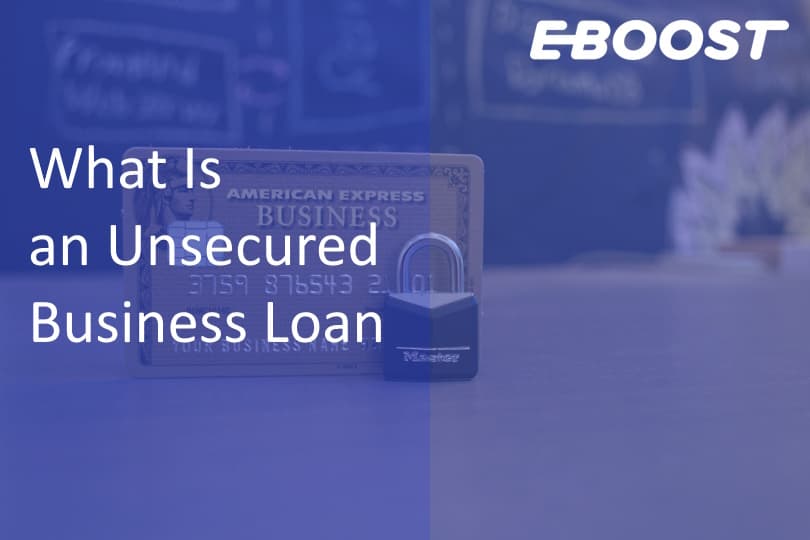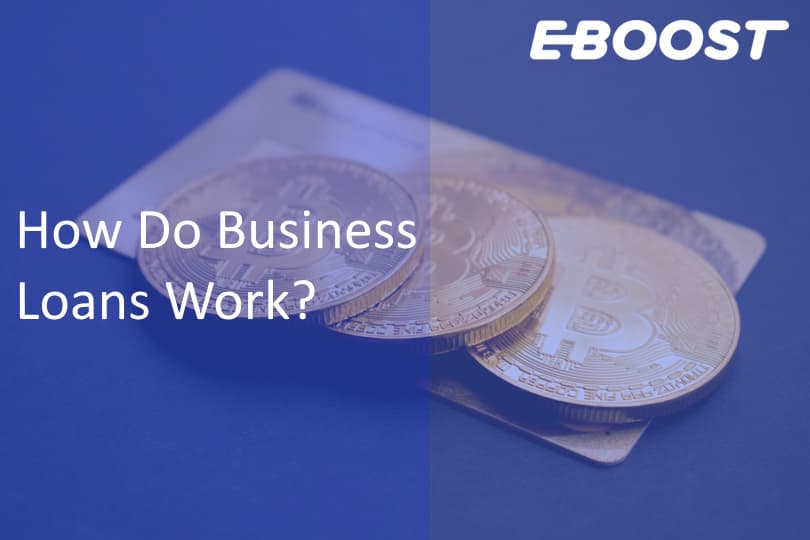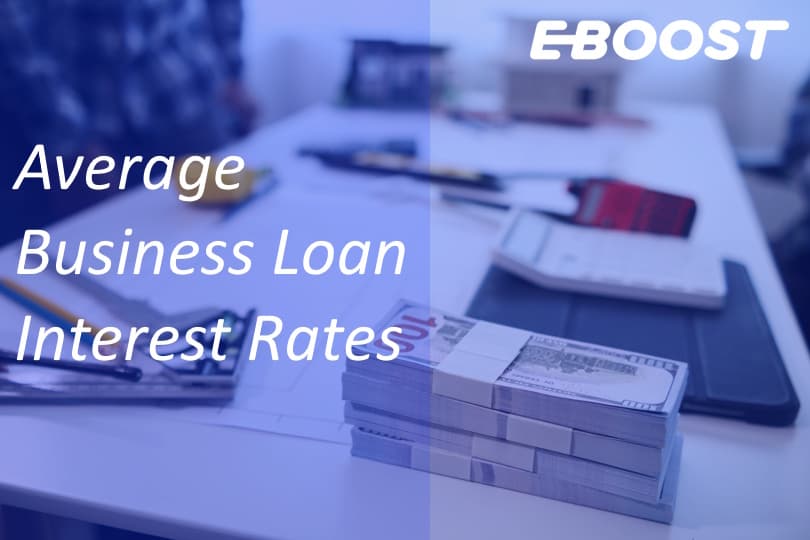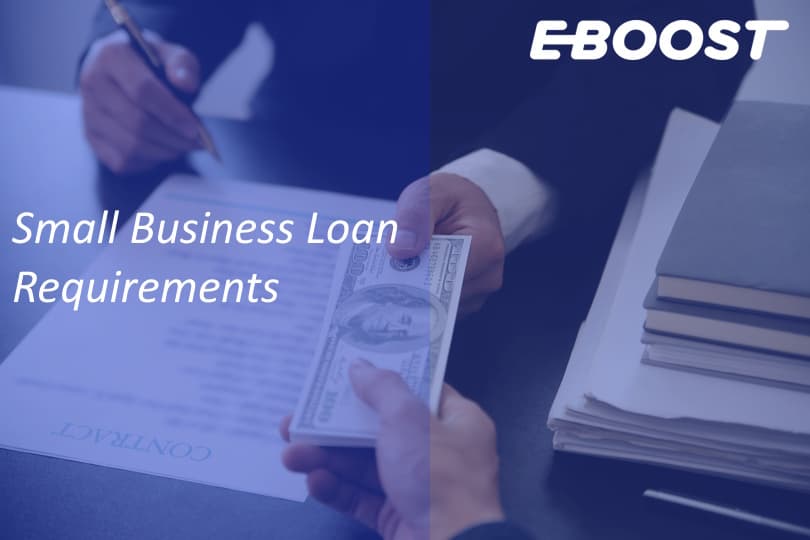Key Takeaways
- Business loan visibility: If your business loan requires a personal guarantee, it can show up on your personal credit report, influencing mortgage eligibility.
- Credit and DTI matters: Lenders pay close attention to your credit score and debt-to-income ratio, so having a loan on the books can shift those numbers.
- Financial documentation: A solid paper trail – tax returns, bank statements, and profit/loss statements – helps prove you can manage both your business loan and a mortgage.
- Separate finances: Maintaining distinct accounts for business and personal use can ease a lender’s concerns by showing the loan isn’t a burden on your personal budget.
- Proactive improvements: Paying down smaller debts, monitoring credit reports for inaccuracies, and getting professional advice can raise your chances of mortgage approval.
You’ve spent ages perfecting your business plan, you’ve met with potential investors, and you finally took out that business loan to boost your company’s prospects. Now, you’re considering buying a cozy home or a bigger place for your family. It’s thrilling! But there’s a nagging question in the back of your mind: Will the business loan I took out complicate my mortgage application? I’m with Eboost Partners, and I can tell you that you’re not alone in pondering this. Plenty of our clients juggle personal and business financial goals every day, and the good news is, it’s absolutely possible to pursue both. However, there are some facts you should know so you don’t stumble over any avoidable hurdles.
We’re talking about the intersection of business financing and mortgage eligibility, two worlds that sometimes appear separate. Yet, the truth is, these areas can overlap in surprising ways. I’ve seen folks who assumed their personal credit and business finances would remain as distinct as chalk and cheese – only to find that lenders sometimes look under the hood of both. That doesn’t mean you have to wave goodbye to your new home. Instead, a careful approach can strengthen both your enterprise and your personal dreams.
By the time you finish reading, you’ll have a better grasp of what mortgage lenders typically want, how business loans factor into that big picture, and some tips for making your application shine. After all, nobody wants the heartbreak of falling in love with a house, only to stumble when finalizing the mortgage. Let’s walk through the finer points and see how you can balance your professional ambitions with your dream home. And if anything sparks a follow-up question, reach out to us at Eboost Partners. We’re here to help.
Understanding Mortgage Approval Criteria
Getting a mortgage isn’t quite the same as applying for, say, a new credit card. There’s a deeper assessment, and lenders aren’t just curious about whether you can handle monthly payments. They also want to know your financial track record, stability, and how your personal or business credit might fit into everything. One of my clients used to say, “Applying for a mortgage is like presenting yourself at a job interview for your finances.” It’s a neat analogy. You’re basically proving you’re trustworthy enough to manage the money they’re lending you.
You might be asking, “So what exactly does the mortgage lender look at?” Let me explain. While each financial institution has its own processes, there are a few core points that nearly all of them examine: your credit score and history, your debt-to-income ratio, and the documentation that shows how steady your finances are. Let’s explore these more closely so you can see why a business loan might come into play.
Credit Score and History
Your credit score and history act like a report card for how you handle money. If you’ve done well paying off credit cards, personal loans, or a car note, that consistent track record will work in your favor. Lenders see that as a sign of reliability. On the other hand, late payments or delinquencies chip away at your score.
But here’s where it ties back to your business: If you’ve personally guaranteed a loan for your company – or if you’ve mixed your personal and business finances – there’s a chance your personal credit report shows some of that activity. While a standard business loan might not always hit your personal credit, certain lending structures, especially those requiring a personal guarantee, can indeed appear on your report. This doesn’t always sink your mortgage chances, but it may affect how lenders view you.
Before you panic, remember that imperfect credit is not the final word. We see many entrepreneurs with less-than-ideal credit find ways to secure mortgages by boosting their scores. Some even consider specialized financing solutions, like business loans for bad credit to keep their companies afloat while rebuilding their credit profile. The key is to know where you stand, keep an eye on changes, and maintain as clear a separation as possible between personal and business obligations.
Debt-to-Income (DTI) Ratio
When mortgage lenders talk about DTI, they’re basically answering one question: “Does this person earn enough to cover all their debts comfortably?” They do the math by dividing your monthly debt payments by your monthly income to see if you can manage a new mortgage on top of everything else. The lower your ratio, the more appealing you appear as a potential borrower.
Here’s where that business loan can creep into the discussion. If you used your personal finances, or if you cosigned for the company, lenders could factor the business loan payments into your total debt. Even if the business has been humming along, the extra debt might skew that ratio, potentially making it harder to qualify for a mortgage – or at least for the size of mortgage you want. That’s why many business owners make a clear line of separation, so the monthly payments don’t weigh down their personal DTI.
That being said, not all business loans count in your personal DTI. If it’s solely under the company’s name and doesn’t require any personal guarantee, some lenders ignore that. But a surprising number of small business owners do sign personal guarantees. Whether because business loan requirements can be strict or because new businesses often lack credit history, it’s common to see the founder personally guaranteeing the debt. So it really depends on the structure of your loan and how your lender sees that liability.
Documentation and Financial Stability
Mortgage lenders also want a look at your bank statements, tax returns, and any documentation that shows ongoing stability. If you’re self-employed or a small business owner, they might dig a bit deeper, requesting financial statements for your business too. It’s all about painting a picture of continuity and reliability: Do you have consistent income? Are you able to show that your enterprise is profitable enough (or at least stable enough) that you’ll keep up with your mortgage payments?
If your business is brand-new or has a fluctuating revenue stream, this could raise eyebrows. Likewise, if you’ve changed your personal or business structure recently without a paper trail that clarifies why, it can complicate the approval process. Think about a scenario where your business loan was used to buy advanced equipment for a new product line. If your mortgage lender sees lots of debt for a project that hasn’t yet produced steady revenue, they might want extra reassurance. This doesn’t mean it’s impossible to get approved; it just means you might need a more comprehensive explanation – and additional documents.
How a Business Loan Can Impact Your Mortgage Application
Let’s get to the heart of it: how exactly does your business loan influence your mortgage application? The general rule is that anything affecting your personal financial picture can factor into how lenders evaluate your mortgage readiness. We touched on credit scores and DTI, but there’s also the matter of financial stability and the perception it creates among underwriters. Let’s look at these angles one by one.
Impact of Business Credit on Personal Credit
Some people assume if the business loan is in the company’s name, they’ve got nothing to worry about. That’s occasionally true – but not always. Many business loans, especially for smaller ventures, use what’s called a personal guarantee. If you sign one, you’re legally promising to pay back that loan with personal funds if the business can’t. This can affect your personal credit if payments are late or if there’s a default.
Even if the payments are on time, the sheer presence of that loan might appear as an obligation on your personal credit. It depends on how the lender reports the debt. We’ve seen cases where business owners discover their personal credit score took a small dip after opening a sizable line of credit for the company. This matters when your mortgage lender pulls your report, since any additional liabilities or changes in your credit utilization can influence how they rank you.
Additionally, if you’re someone who wonders, can you buy a house with business credit – the short answer is not in the usual personal mortgage sense. A mortgage for a primary residence typically relies on personal credit. While business credit can help certain commercial property purchases, for a regular home loan, you’ll still be evaluated personally. So if your business obligations are spilling into your personal finances, that’s where things get a bit tricky.
Impact of Business Credit on Debt-to-Income Ratio
Remember that dreaded DTI we discussed? If the business loan is considered part of your personal debt, it might push your ratio higher than is comfortable for many mortgage underwriters. A higher DTI suggests you have less wiggle room for additional debt, and your mortgage could be seen as riskier. You know what? Sometimes, a small bump in your DTI doesn’t matter, especially if you have strong credit or a robust down payment. But it’s smart to do the math ahead of time, so you’re not left speechless when the lender mentions it.
And here’s a twist: If your business loan is truly separate, or if the payments are covered by the company’s income alone, some mortgage lenders will exclude those payments from your personal DTI once they see documentation. For example, if you have a separate business bank account that clearly covers the monthly loan payments without tapping your personal funds, that can help. But, lenders might ask you to demonstrate a consistent pattern of the business paying for itself – no personal checks, no personal accounts used to cover business shortfalls.
Perceptions of Financial Stability with Business Credit
Mortgage lenders don’t just crunch numbers; they also make a judgment call about your financial stability. If you’ve got a solid track record of paying your business loan responsibly, it can actually reflect positively. It shows you’re committed to your financial obligations. It’s somewhat akin to having a well-managed portfolio of credit cards – moderate debt, all paid on schedule, can indicate discipline.
However, if your business’s revenues are volatile or the lender senses you might be overextended, they could worry that a business downturn might lead you to tap into personal funds. This is why showing a robust business plan and healthy company finances can reassure them. Some folks worry that even a single business loan will raise red flags. That’s not necessarily the case. The question is: Is your loan an asset in terms of building your company, or is it a sign of financial strain?
Separation of Business and Personal Finances
If your enterprise finances are mingled with your personal ones, it often becomes harder to prove that the business loan won’t infringe on your personal ability to repay the mortgage. A neat separation can go a long way in clarifying your financial picture. For instance, if you have a business checking account solely dedicated to your enterprise – into which you deposit your corporate revenues, pay expenses, and service the business loan – that neat partition can make it clear the loan is not your personal debt.
Sometimes, though, a brand-new entrepreneur can’t entirely separate funds. In that case, good record-keeping is your friend. If you manage to maintain a clean ledger, properly labeled transactions, and consistent saving habits, you’ll be able to show lenders exactly how your finances flow. That transparency can help mitigate any suspicion that the business loan might hamper your personal obligations.
Strategies to Mitigate Negative Impacts of Business Credit
By now, you might be thinking, “Okay, I see how a business loan could add wrinkles to my mortgage application. But is there a way around this?” Absolutely. Owning a business shouldn’t mean forfeiting the dream of homeownership. However, it does call for a more deliberate approach. Let’s talk about some practical actions you can take right now, whether you’re just beginning your home search or you’re already in the mortgage pre-approval stage.
Improve Your Credit Score
Even if you’re juggling a business loan, a strong credit score can offset a lot of worries. One of the quickest ways to give your score a nudge is by making on-time payments across all your credit lines, whether they’re personal or business accounts that appear on your personal report. Paying down existing debts can also help reduce your credit utilization ratio, which is a fancy way of saying, “Don’t rack up maxed-out credit limits.”
Sometimes, entrepreneurs overlook personal credit because they focus so much on the business. If that’s you, be intentional about checking your personal credit report regularly. Tools like Credit Karma or annual free reports from the major bureaus can help you spot errors or areas that need your attention. If you see negative remarks, consider addressing them with the creditors. And if your score is still below what you want, it might be worth waiting a few months – making extra payments on outstanding balances – to give your score a little lift before you apply for a mortgage.
If you’re curious about different ways to strengthen your financial footing, you might enjoy reading our piece on business loans for bad credit, which covers how entrepreneurs manage their credit profile while keeping their ventures afloat. While that article mainly explores business credit, the lessons sometimes translate to personal finances as well.
Manage Debt-to-Income Ratio
If your personal DTI is pushing the upper limit, you can take some steps to gently bring it down. One method is to pay off smaller debts first – like credit cards or short-term personal loans – so your monthly obligations shrink. Another approach is to increase your income, which might sound easier said than done, but in a thriving business, perhaps you can adjust your owner’s draw or salary.
At Eboost Partners, we often remind clients that while it can be exciting to invest every spare dollar back into your business, you might want to hold off on major expansions if a home purchase is on the immediate horizon. If you’re planning to snag a mortgage within the year, consider what personal debts can be reduced. That way, your DTI ratio looks more appealing. If you’re not sure how to do the math, many online calculators can help you gauge your current ratio. It’s pretty straightforward: add up all your monthly debt payments, divide by your gross monthly income, and convert to a percentage. If you don’t like the percentage you see, tweak the variables.
And remember, if your business loan is fully separate from your personal finances, gather documentation that proves it. Show your mortgage lender that the business loan payments come straight from the company’s coffers. This clarity can sometimes exclude the business debt from your personal DTI calculation.
Preparing a Strong Mortgage Application
When applying for a mortgage, especially if you’re self-employed or reliant on business income, you’ll want to present yourself in the best possible light. That might mean offering a robust packet of information beyond what the average salaried employee would. You’ll likely need two years of personal tax returns, and possibly the same for your business. In some cases, lenders also ask for year-to-date profit and loss statements, official bank statements, and evidence of consistent client or customer payments.
If your business is older than two years, you’re generally in a better position. Showing that your company can handle monthly expenses (including any business loan interest rate you might be paying) paints a reassuring picture. Make sure to highlight positive cash flow trends, major client contracts, or any other signs of growth. Lenders love stability. The more you can illustrate that your company is solid – despite the presence of a loan – the more comfortable they’ll be approving your mortgage.
Occasionally, entrepreneurs wonder, do business loans count as income? Typically, no. Loans are not considered income. But if you’ve used that loan to successfully grow your business, the resulting profits can appear as part of your personal earnings. So the loan itself isn’t the direct advantage for mortgage qualification, but the subsequent revenue growth from that funding can be. A well-thought-out explanation of how the loan was used and how it boosted your company might help your cause in the eyes of some underwriters.
Seek Professional Advice
Sometimes, the best strategy is to connect with professionals who handle these scenarios every day. We’re talking about mortgage brokers, financial advisors, or even a specialized accountant who knows the ins and outs of self-employment. They can help you structure your approach so that the business loan doesn’t overshadow your mortgage application. For instance, an accountant might find a simpler way to present your financial statements, or an experienced broker may know a lender that’s more open to self-employed borrowers.
You could also talk to your loan officer about the possibility of explaining any unusual points in your application. If there’s a big deposit in your bank account that came from your business loan, or if you have a spike in expenses from purchasing inventory, you might want to address it in a letter of explanation. While it can be a bit more paperwork, lenders usually appreciate the clarity. Clear communication can often quell doubts before they arise.
So, where does all of this leave you? If you’re trying to balance business ambitions and personal homeownership, there’s no reason you can’t pull it off. Just remember: a business loan might add an extra layer of scrutiny, so be prepared to show lenders that you’ve got it under control. Keep tabs on your credit, watch your DTI, and don’t shy away from seeking help.
If you’re in need of a loan for your business – or you have questions about how your current loan might affect your mortgage prospects – we at Eboost Partners are ready to chat. Our team specializes in tailoring type of business loans to fit entrepreneurs’ goals. Whether you’re wondering if interest on a business loan is tax deductible, curious about the average business loan term, or looking into loans to buy a business, we’ve got the resources and industry know-how to guide you. You can reach us by phone, email, or through our website’s contact form. We understand how crucial it is to get the right funding at the right time, without derailing your personal dreams.
In fact, if you’re still weighing the question, “Should I get a small business loan?” or worried about how getting a business loan for the first time might affect your personal plans, why not let us help you sort through the details? We’ve seen countless entrepreneurs navigate these waters, and we’ve helped them structure financing options so they can say yes to the home they want. Ready to learn more? Give us a shout or visit our website. After all, your business doesn’t have to stand in the way of your dream home – it can help fuel your overall prosperity.
Resource:
- Consumer Financial Protection Bureau (CFPB): https://www.consumerfinance.gov/
- Federal Housing Administration (FHA): https://www.hud.gov/program_offices/housing/fhahistory
- Small Business Administration (SBA): https://www.sba.gov/funding-programs/loans











